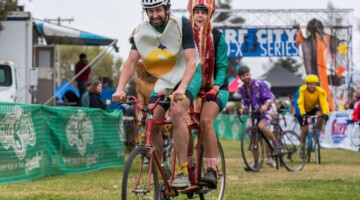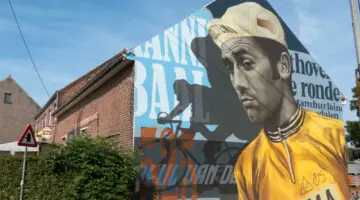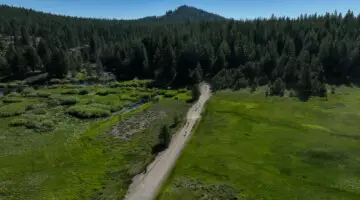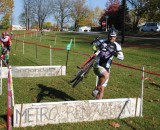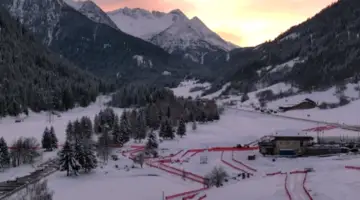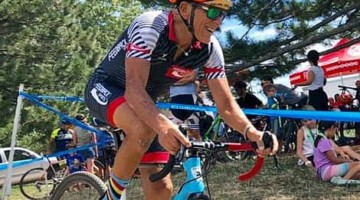by Robert Annis
After a moderately successful road season last year, it was time to turn my focus onto cyclocross. I was riding better and stronger than I ever had in the past, so I was confident that I would dominate my fellow Cat 4 racers once the racing started. Not wanting my equipment to handicap my physical superiority, I bought a sweet new Ridley X-Fire with handbuilt tubular wheels topped by Challenge Grifo tires. I had the fitness. I had the gear. So when I rolled up to the starting line for that first race of the season, I knew nothing was going to stop me from climbing onto the podium.
Of course, my dreams and reality never met. 33 other riders kept me from that coveted podium spot that day, and as the season wore on, I realized that not only had my preparation for the season been completely wrong – you mean dropping long endurance rides in favor of short sessions of skills training wasn’t a good idea? – but also none of my attempted solutions came close to working. With each passing race, I grew more discouraged. I’m pretty sure an upstart eight-year-old would have dropped me if they let me ride the kids race.
By the season’s final race, I was cooked both mentally and physically. I went into the season thinking I knew what I was doing thanks to a few half-read magazine articles and offhand training suggestions from teammates. But my failures showed just how truly lost I was when it came to training, preparation and race skills. I spent thousands of dollars on new gear, but I didn’t have the knowledge or proficiency to make the most of it.
I’m not making that same mistake this year.
Over the next year, I’m going to find out if your average mid-pack rider in his late 30s – namely, me – can become a consistently winning racer with the right training and knowledge. Providing that knowledge will be my new coach, John Singleton of Full Circle Cycling and Promotion Fitness in Indianapolis. John, a former national masters medal winner on the track, is a Level 2, USA Cycling-certified coach specializing in power training. After asking around and meeting him for the first time, I quickly came to the conclusion the man knows his stuff. The first few workouts we had proved it.
After discussing my goals and looking at the tentative race and ride schedule for this year, we came up with a detailed plan that should have me briefly peaking twice during my road season and a longer, more sustained peak during my cross season. To keep things interesting over the long season, I’ll be doing a few charity century rides, some time-trials and track races, and taking some short breaks off the bike to pursue other interests.
With the plan in place, it was time to get to work.
It may be common sense, but the first thing I learned about being a coached athlete is that it’s not a magic bullet. The coach can give you knowledge, but he can’t sweat for you; you’re the one who has to put the hours in on the bike. A coach might be able to help you maximize that trainer time, but in the end, it’s all up to you.
The second thing I learned is that a coach can be a cruel bastard, trying to torment you anyway he can. Whether it’s torture by boredom (hours upon hours of spinning at zones 1 and 2) or by pain (repeating zone 6 intervals), coaches take great pleasure in breaking you down to build you back up. I never cried during a workout, but it wasn’t from lack of trying on John’s part; I can only imagine the sadistic smile on his face as he opened up my Training Peaks file each night and saw my feeble attempts at following his instructions.
A former mechanical engineer by trade, John could have easily gone into psychology. After barely managing 45 seconds on a set of two-minute high-intensity intervals, John was there to talk me off the ledge and offer encouragement.
“If it came easy, why would you need me?” he asked, telling me to be patient, to work hard and the results would come.
By the same token, a coach will also keep you from doing too much. At times, I wanted to go harder or longer or skip a scheduled rest day; sometimes John would accommodate me, but other times, he said no, reminding me to think of the bigger picture.
It’s going to be a long season, and I’ll be documenting it as much as possible through this column. Like last year, I’m sure plenty of things won’t go according to plan – bike racing is a brutal and dangerous sport where anything can happen, after all. But I’m looking forward to the challenge.





